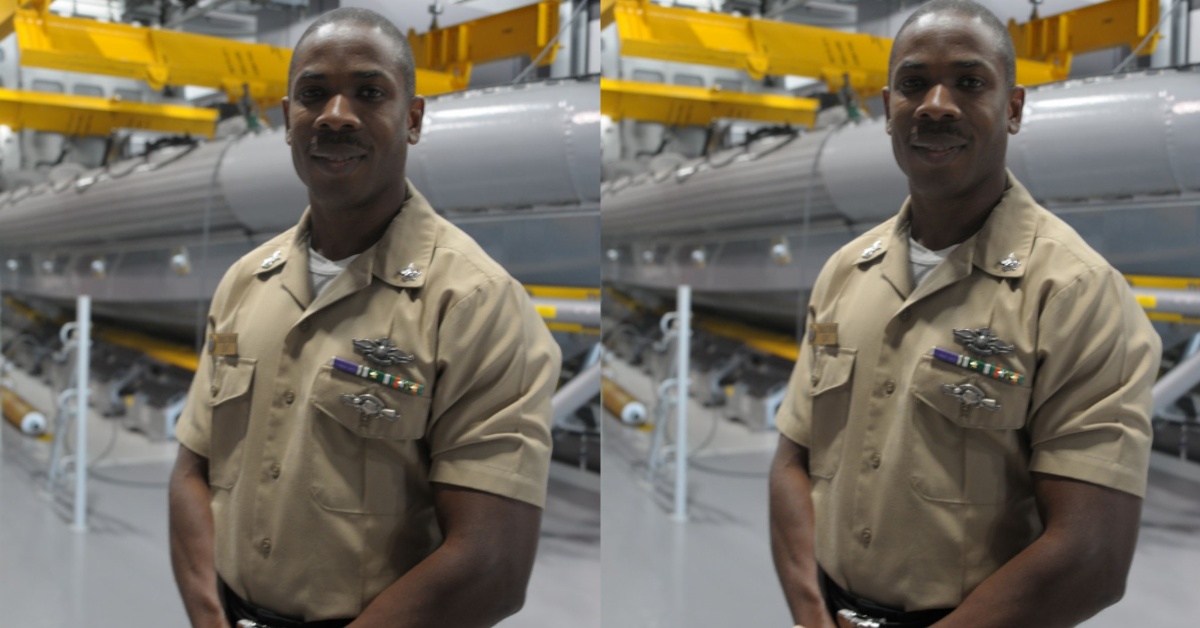Petty Officer 1st Class Charles Taylor, a sailor hailing from Freetown, Sierra Leone in West Africa, is proudly serving aboard the Pre-Commissioning Unit (PCU) Marinette.
The PCU designation is used by the U.S. Navy for crews serving on vessels under construction before their official commissioning.
Taylor, a graduate of Prince of Wales School in 2003, joined the Navy over 16 years ago, driven by a spur-of-the-moment decision while he was in college. He also sought the college benefits offered by the Navy. In 2006, he earned an associate’s degree in medical assistance from Kings College.
Having grown up in Sierra Leone, Taylor credits his success in the military to the skills and values he learned in his homeland. The experience of enduring civil conflicts and witnessing death and destruction taught him perseverance, a quality that has served him well in the Navy.
The Marinette, as described by Navy officials, will be a fast, optimally-manned surface combatant capable of operating in near-shore and open-ocean environments. Littoral combat ships like the Marinette work in conjunction with joint, combined, manned, and unmanned teams to support forward-presence, maritime security, sea control, and deterrence missions worldwide.
These hybrid surface combatants lead manned-unmanned teams using unmanned aerial systems such as the Fire Scout and Expeditionary Ordnance Disposal forces, along with unmanned underwater vehicles. They undertake forward and maritime security missions, including the Secretary of Defense Oceania Maritime Security Initiative. Furthermore, their shallow-depth hull allows them to strengthen partnerships through port visits in small island nations like Tahiti and Fiji.
Becoming an LCS sailor, according to Navy officials, entails a unique and challenging path. After an 18-month training pipeline, sailors qualify on a virtual reality simulator that closely replicates the ship. This rigorous and lifelike training equips sailors to fulfill their roles and responsibilities effectively as soon as they step on board.
Navy officials stress that with 90 percent of global commerce relying on sea transport and internet access hinging on the security of undersea fiber optic cables, the prosperity of the United States is closely tied to a strong Navy and well-trained sailors.
Adm. Mike Gilday, Chief of Naval Operations, states, “Our mission remains timeless – to provide our fellow citizens with nothing less than the very best Navy: fully combat ready at all times, focused on warfighting excellence, and committed to superior leadership at every single level. This is our calling. And I cannot imagine a calling more worthy.”
Serving in the Navy means Taylor is part of a team that plays a pivotal role in strengthening alliances, modernizing capabilities, increasing capacities, and maintaining military readiness in support of the National Defense Strategy.
“The Navy is important to national defense by serving as a deterrent and maintaining maritime presence in international waters while cooperating with allied nations,” Taylor explains.
Taylor and his fellow sailors have ample opportunities to achieve significant accomplishments during their military service. Taylor’s proudest moments include participating in an MIA and POW recovery mission in Dien Bien Phu, Northwest Vietnam from October to December 2015. He was also awarded the Navy and Marine Corps Achievement Medal with Valor and received the Purple Heart for his service on the outskirts of Fallujah with the 6th Marine Regiment Battalion Weapons Company.
Recalling a mounted security patrol that came under enemy fire, Taylor recounts the moment his vehicle was struck by an IED, causing it to be launched into the air. Four Marines in the vehicle were injured, one of them losing his legs. Taylor provided immediate first aid and assisted in medevacing them via Blackhawk helicopter to a hospital in Northern Iraq.
As Taylor and his comrades continue their training and missions, they take great pride in serving their country in the United States Navy.
“First and foremost, serving in the Navy means having job security, pride, and a sense of fulfillment,” Taylor declares.
Expressing gratitude to his family for their love and support throughout the years, Taylor concludes his sentiments. “I would like to thank my parents, siblings, and all my extended family for their unwavering support in making my Navy career possible.”












So proud of you Son